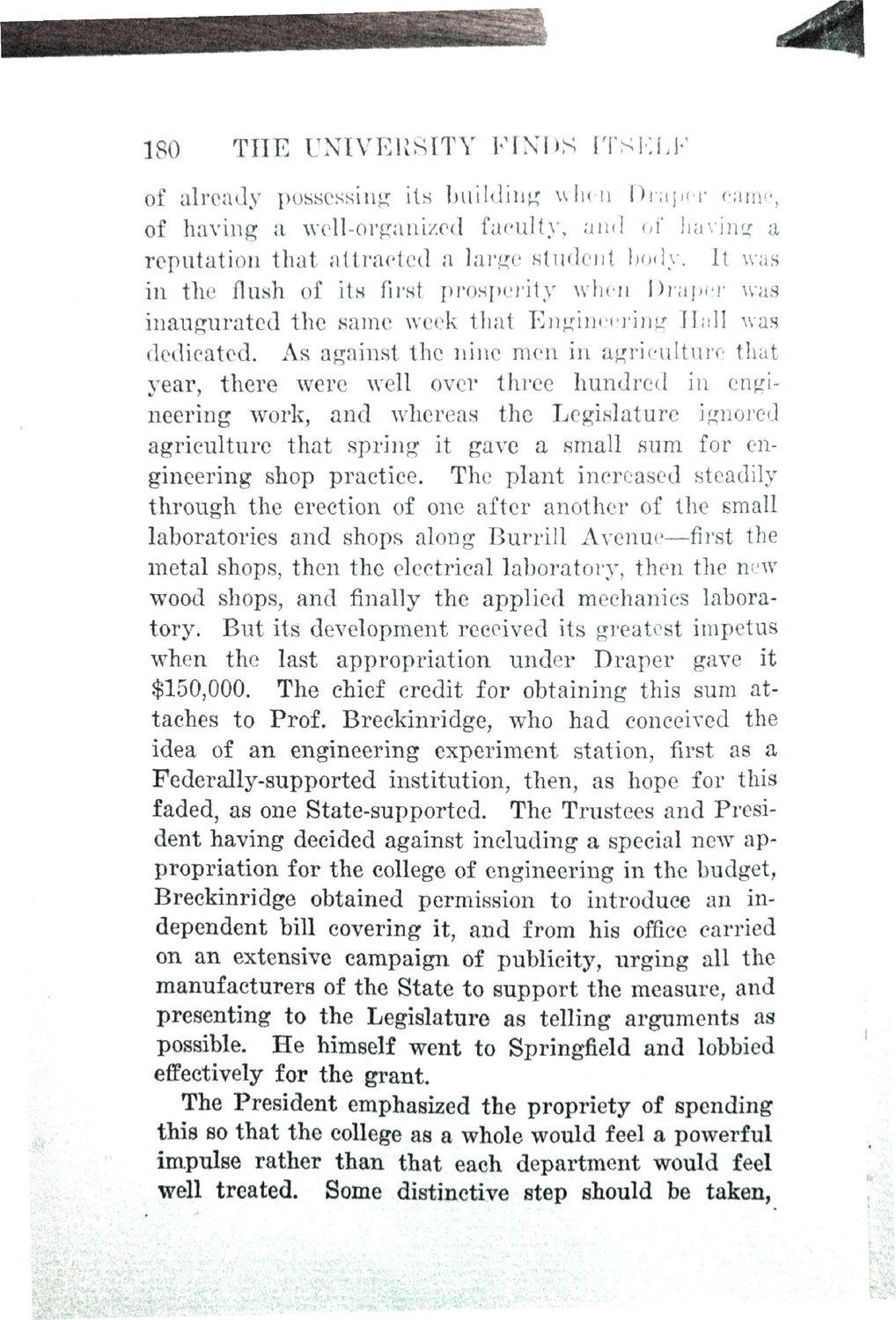| |
| |
Caption: Book - History of the University (Nevins)
This is a reduced-resolution page image for fast online browsing.

EXTRACTED TEXT FROM PAGE:
180 THE UNIVERSITY FINDS ITSELF of already possessing its building when Draper came, of having a well-organized faculty, and of having a reputation that attracted a large student body. It was in the flush of its first prosperity when Draper was inaugurated the same week that Engineering Hall was dedicated. As against the nine men in agriculture that year, there were well over three hundred in engineering work, and whereas the Legislature ignored agriculture that spring it gave a small sum for engineering shop practice. The plant increased steadily through the erection of one after another of the small laboratories and shops along Burrill Avenue—first the metal shops, then the electrical laboratory, then the new wood shops, and finally the applied mechanics laboratory. But its development received its greatest impetus when the last appropriation under Draper gave it $150,000|iThe chief credit for obtaining this sum attaches to Prof. Breckinridge, who had conceived the idea of an engineering experiment station, first as a Federally-supported institution, then, as hope for this faded, as one State-supported. The Trustees and President having decided against including a special new appropriation for the college of engineering in the budget, Breckinridge obtained permission to introduce an independent bill covering it, and from his office carried on an extensive campaign of publicity, urging all the manufacturers of the State to support the measure, and presenting to the Legislature as telling arguments as possible. | | H e himself went to Springfield and lobbied effectively for the grant. The President emphasized the propriety of spending this so that the college as a whole would feel a powerful impulse rather than that each department would feel well treated. Some distinctive step should be taken,
| |